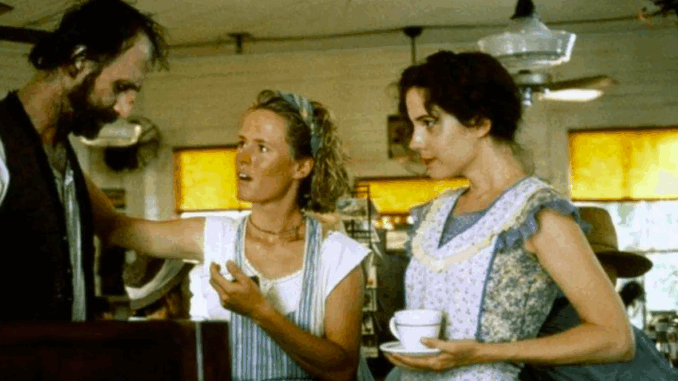
Memory drives Fried Green Tomatoes with a force as vital as any living character. Through Ninny Threadgoode’s vivid storytelling, the past is not merely recalled—it is revived, allowing Evelyn Couch and the audience to step directly into the smoky kitchens, hidden loves, and daring adventures of Whistle Stop. The film blurs the line between recollection and reality until the two become inseparable.
Ninny’s tales are mesmerizing precisely because they are incomplete. Her certainty about some events contrasts with her deliberate silences about others, creating a puzzle of fact and fiction. Every missing detail invites interpretation: was she protecting someone, reshaping the truth, or simply savoring the power of a good story? When Evelyn seeks records to confirm the accounts, she finds only fragments, as though the past itself resists capture.
By the final scenes, memory has done more than entertain—it has transformed. Evelyn’s new confidence and courage are born not from physical action but from the lessons embedded in these stories. The film suggests that memory is not a passive archive; it is a living force that can empower the present and even rewrite a person’s future.
